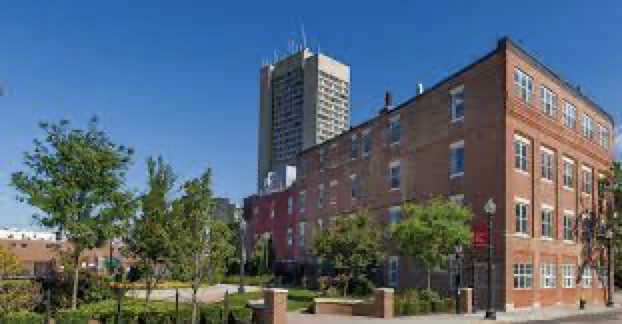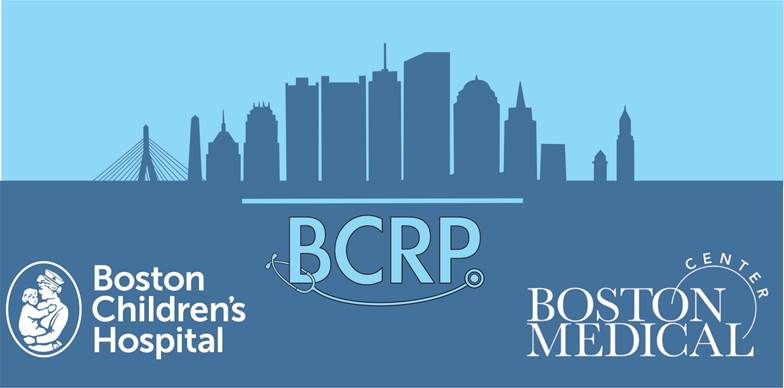Boston Medical Center
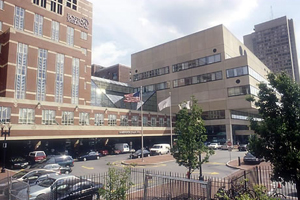
Statistics
• 493 total beds
▻ 22 pediatric inpatient beds
▻ 30 bed newborn nursery
▻ 21 bed neonatal ICU
▻ 4 bed pediatric ICU
• 2,000 inpatient admissions
• 2,850 deliveries
• 63,000 outpatient visits
• Top 3 non-English languages spoken by patients: Spanish, Haitian Creole, Portuguese Creole/Cape Verdean Creole
In July 1996, Boston City Hospital, Boston Specialty and Rehabilitation Hospital, and Boston University Medical Center merged to form Boston Medical Center (BMC). Through its partnership with Boston University Chobanian & Avedisian School of Medicine and Boston Health Net neighborhood health centers, BMC continues the mission set forth by Boston City Hospital more than 125 years ago – to provide exceptional medical care to those living in Boston. The neighborhood health centers, which provide continuity clinic sites for house officer training, contribute an additional 110,000 ambulatory visits each year to the program. Boston Health Net reflects the hospital’s commitment to community based care by combining BMC with 13 community based health centers into an integrated service delivery network. Starting in March 2018, BMC joined as a leader in the Boston Accountable Care Organization (BACO).
Inpatient Facility and Outpatient Facilities
Inpatient pediatrics is housed in a brand new, state of the art, single bed only inpatient pediatric unit, a 4-bed pediatric intensive care unit, a 30+ bed newborn nursery, and a 21-bed level III neonatal intensive care unit with single rooms for newborns and mothers. There are approximately 2,800 deliveries each year, 50 percent of which are considered high risk. The Department and residency serves a busy pediatric emergency room and ambulatory center, with the pediatric ED seeing 24,000 visits each year and the ambulatory center seeing 60,000 visits each year. Twenty-five outpatient programs including primary care, adolescent medicine, pediatric allergy and immunology, cardiology, developmental behavioral pediatrics, gastroenterology, genetics, hematology, infectious disease, nephrology, neurology, nutrition, pain, pulmonology, rheumatology, and a variety of other specialty programs, were relocated in Summer 2023 to a brand new clinical space in the Crosstown Building of the medical campus. Each of these programs aims to provide high-quality patient care alongside holistic, innovative, and patient-centered wraparound services. For example, the GROW Clinic is an outpatient subspecialty clinic founded in 1984 to provide comprehensive medical, nutritional, developmental, social services and dietary assistance to children with faltering growth. In addition the clinic advocates for policies that decrease community food insecurity. The Department also offers patients an integrated mental and behavioral health clinic, an IEP specialty clinic for those with unique educational needs and developmental supports, and the SOFAR clinic, a multigenerational clinic for mothers with substance use disorders and their infants.
Shapiro Ambulatory Care Building
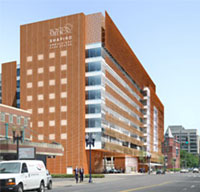
In April 2011 BMC hosted the grand opening of the Carl J. and Ruth Shapiro Ambulatory Care Center, a state-of-the-art facility for outpatient services. The 250,000 square foot, nine-story building allowed consolidation of clinical programs and a standard of care delivery that maximizes patient comfort and operation efficiency.
Crossstown Ambulatory Care Center
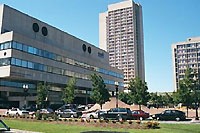
Pediatric Department ambulatory programs, including the BMC-based resident primary care clinic, are located in a brand-new clinic space located seventh floor of the Crosstown Building at 801 Massachusetts Avenue. The Department provides extensive services to its patients at this ambulatory site, including lab services, a clinic-based literacy program (Reach Out and Read), and co-located tax preparation service to help eligible families apply for and receive their earned tax benefits. Families have access to co-located integrated behavioral health, and both general patient navigation and housing navigation services, specifically.
Maxwell Finland Laboratory
The Maxwell Finland Laboratory for Infectious Diseases, named for the world-renowned investigator of bacterial diseases and antibiotics, houses the laboratories of the divisions of pediatric infectious diseases, immunology, pulmonary, and molecular biology. Research in these laboratories focuses on problems of children living in urban and metropolitan settings both in the US and abroad.
.
Isadore Talbot Building
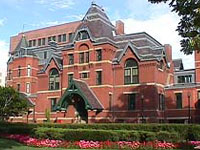
The Talbot Building demonstrates the beautiful architecture of turn-of-the-century Boston. It was the original site of the Massachusetts Memorial Hospital (predecessor to BMC) and is now the site of the offices of the hospital CEO, Dr. Alastair Bell, and the Boston University School of Public Health.
Moakley Cancer Care Building
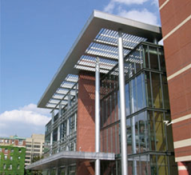
Through the Moakley Building, BMC provides a best-in-class, centralized cancer and ambulatory care facility that embodies the hospital’s commitment to providing exceptional care. Named in honor of the late Congressman John Joseph Moakley, a devoted champion of BMC, the building was designed to streamline care by consolidating the diagnostic and cancer treatments that were previously scattered across the 16-square-block medical campus. The services offered, include access to the most advanced technological tools used in the diagnosis and treatment of cancer and digestive and otolaryngology disorders, a breast health center, and an ambulatory surgery center.
BU National Emerging Infectious Diseases Laboratories (NEIDL)
In 2003, Boston University was awarded a grant from the National Institute of Allergy and Infectious Diseases (NIAID) to build one of two National Biocontainment Laboratories. Supporting NIAID’s newly developed research agenda, the National Emerging Infectious Diseases Laboratories (NEIDL) represents a major step forward in advancing public health and solidifying the New England area’s reputation as the biomedical research hub of the nation.
801 Albany Street
In 2019, the Department of Pediatrics faculty and all clinical and research staff relocated to newly renovated offices in 801 Albany Street. This was the first time in the Department’s history that the entire staff was co-located to foster greater opportunities for clinical, research, and educational collaboration and innovation. Now home to the 300+ member Department of Pediatrics, 801 Albany is the building where residents have lunch and attend daily noon conference on weekdays alongside faculty, Chief residents, and Departmental and residency program leadership. It includes the ever-important Chief resident office, a resident computer workstation and a staff lounge on the 3rd floor.
